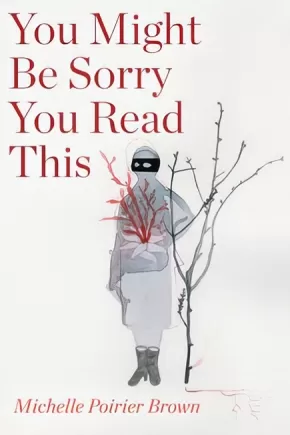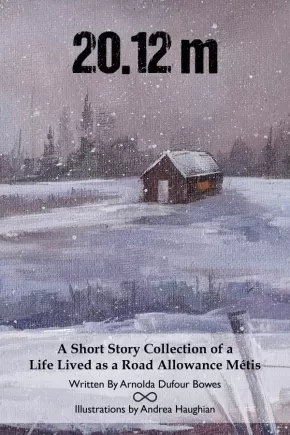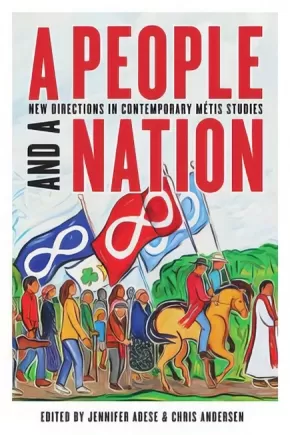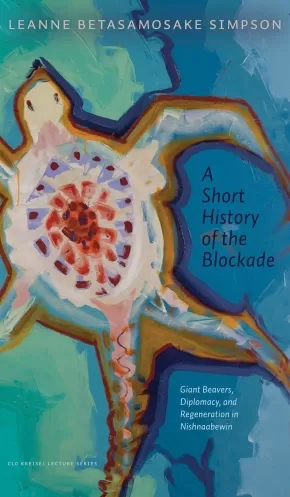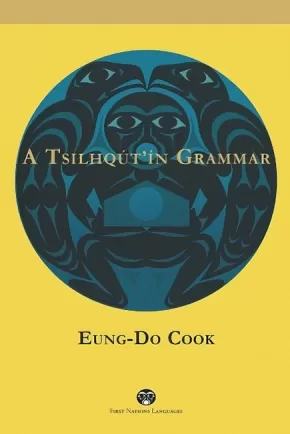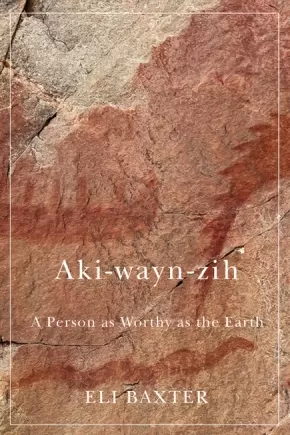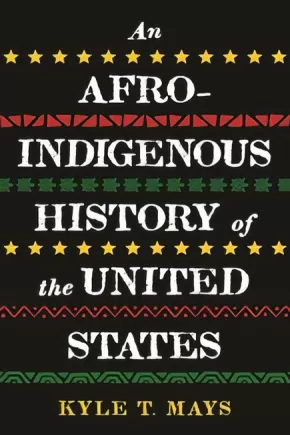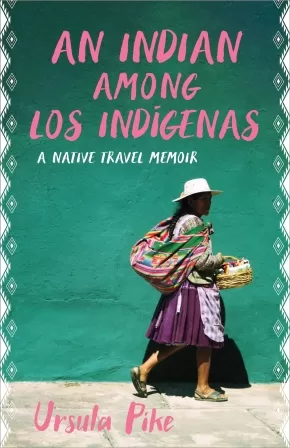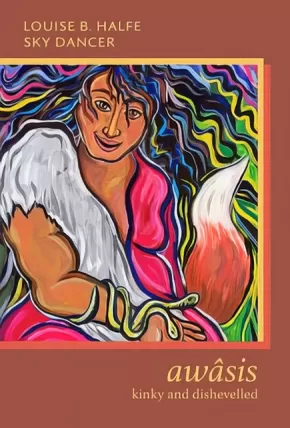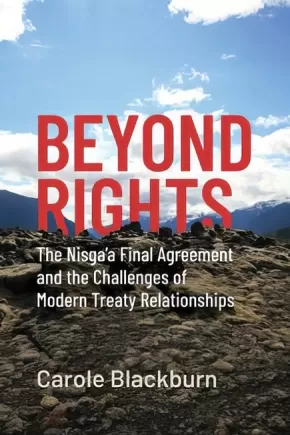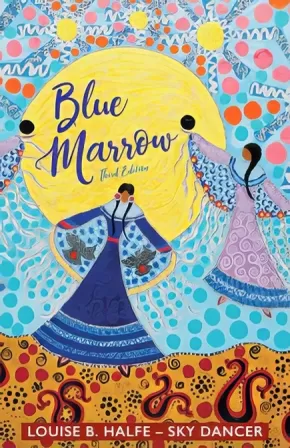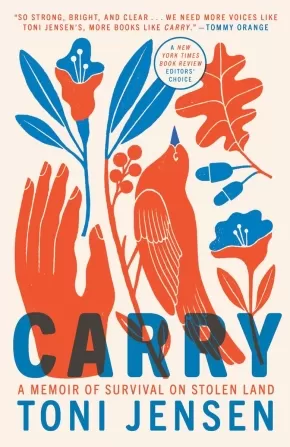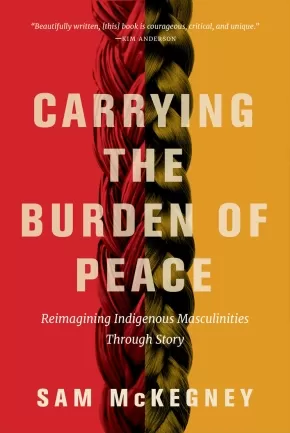
Indigenous Studies
451
-
465
of
1030 Results;
Sort By
Go To
of 69
You Might Be Sorry You Read This
$19.99
Format:
Paperback
Text Content Territories:
Indigenous Canadian; Métis;
Grade Levels: University/College;
ISBN / Barcode: 9781772126037
Synopsis:
Synopsis:
You Might Be Sorry You Read This is a stunning debut, revealing how breaking silences and reconciling identity can refine anger into something both useful and beautiful. A poetic memoir that looks unflinchingly at childhood trauma (both incestuous rape and surviving exposure in extreme cold), it also tells the story of coming to terms with a hidden Indigenous identity when the poet discovered her Métis heritage at age 38. This collection is a journey of pain, belonging, hope, and resilience. The confessional poems are polished yet unpretentious, often edgy but humorous; they explore trauma yet prioritize the poet’s story. Honouring the complexities of Indigenous identity and the raw experiences of womanhood, mental illness, and queer selfhood, these narratives carry weight. They tell us “You need / only be the simple / expression of the divine / intent / that is your life.” There is a lifetime in these poems.
Reviews
"Michelle Poirier Brown’s first collection of poetry is accomplished and gripping. In her five-decade story, perceptions, denial, emotional embroilments and poignant tenderness are peeled back and examined. As the narrative builds, we encounter the sheer alchemical power of poetry. This is rare. You Might Be Sorry You Read This will change you." — Betsy Warland, Bloodroot—Tracing the Untelling of Motherloss
“One of the functions of poetry is to make you uncomfortable.” This epigraph, by Pádraig Ó Tuama, begins Michelle Poirier Brown’s debut collection—a collection that intends, unapologetically, to discomfort the reader. With unflinching precision and the exactness of a fine poet’s eye, Poirier Brown challenges her readers to encounter not only her childhood trauma but, ultimately, the power of her self—her late-discovered Métis identity, her navigation of PTSD, her unwillingness to settle for less than the truth. In the final poem, “Self-Portrait of the Poet,” she concludes, “go ahead. look. / Look as long as you like.” Invitation or command, it’s a hard look Poirier Brown offers. It may make readers uncomfortable. But they won’t be sorry.” —Laura Apol, author of A Fine Yellow Dust
Educator Information
Keywords / Themes: Identity, Trauma, Pain, Resilience, Family, Métis, Indigenous.
Table of Contents
1 The Father I Had
3 God Was a Baby
4 A Child’s Book of Holy Services
6 Her Breath on My Face
8 Other Side of the Glass
10 Effect on Her Throat
11 The House on Strathnaver Avenue
15 Mothers Who Know
16 The Thing About Snow
22 Photograph
23 Under the Covers
25 The Girls I Grew Up With Are Everywhere
27 Short Change
28 After the Test
29 Walk on the Left-Hand Side
30 5:53 PM
32 A Perspective on Women
33 Collard Greens
34 Lasts
36 I’m Allowed to Have Whatever Kind of Father I Want
38 Intimacy
39 On the Porch
41 At Times, My Teeth Chatter
about face
46 What It’s Like to Have My Face
47 Understanding My Face
52 Wake
54 A Fragile Defiance
55 Smoke
57 Winnipeg Trip
59 Commitment
61 Two Mornings, 2018
63 Boxed
64 Those I Call Friends
66 Duck Ugly
67 Beneficiaries of a Genocide
69 Slow
70 Sometimes You Learn Things Quite Late in the Game
72 Something Purple
75 what it is like to be this extreme and appear normal
78 The Other Grandmother
80 Self-Portrait of the Poet
83 addendum
87 poetic statement
90 acknowledgements
Additional Information
104 pages | 6.00" x 9.00" | Paperback
20.12m: A Short Story Collection of a Life Lived as a Road Allowance Métis
$20.00
Artists:
Format:
Paperback
Text Content Territories:
Indigenous Canadian; Métis;
ISBN / Barcode: 978-1-926795-99-7
Synopsis:
Synopsis:
20.12m: A Short Story Collection of a Life Lived as a Road Allowance Métis celebrates and acknowledges the humble living conditions of Métis Road Allowance families and it exemplifies their grit and tenacity to survive and indeed succeed in the face of so many hardships. “20.12m” refers to the narrow width of many of the road allowances throughout the prairies. This unoccupied crown land became one of the meagre options for many impoverished Métis families as so few owned land.
In this passionate coming of age book, Arnolda Dufour Bowes honours the true-life experiences of her father, Arnold Charles Dufour, a resident of the Punnichy, Saskatchewan Road Allowance community. The strength of the oral tradition has kept these stories solidly in place in Arnolda’s memory. Weaving true elements with those drawn from her own creativity, these five engaging stories share a lived experience that is little-known to most Canadians. This collection of cherished remembrances of this Métis family will also strongly resonate with many other Métis families who lived similar lives. In keeping with the family focus, Arnolda’s sister, Andrea Haughian, skillfully complements these poignant stories with expressive illustrations, which both honour and richly portray road allowance life.
Educator Information
Recommended by publisher for secondary, post-secondary, and adult readers.
Additional Information
Paperback
A People and a Nation: New Directions in Contemporary Métis Studies
$29.95
Editors:
Format:
Paperback
Text Content Territories:
Indigenous Canadian; Métis;
Grade Levels: University/College;
ISBN / Barcode: 9780774865074
Synopsis:
Synopsis:
In A People and a Nation, the authors, most of whom are themselves Métis, offer readers a set of lenses through which to consider the complexity of historical and contemporary Métis nationhood and peoplehood. Multidisciplinary chapters on identity, politics, literature, history, spirituality, religion, and kinship networks orient the conversation toward Métis experiences today.
The chapters within are themselves also a reorientation given that the field of Métis Studies has been afflicted by a longstanding tendency to situate Métis within deeply racialized contexts, and/or by an overwhelming focus on the nineteenth century. A People and a Nation confronts such problematic characterizations head on, training a critical gaze on conventional historiographical positionings of the Métis people as a primitive intermediate force that opened up the Canadian West.
A People and a Nation dismantles the impoverished notions that continue to shape political, legal, and social understandings of Métis existence. It is a timely collection that convincingly demonstrates how racialized interpretative frameworks diminish the Métis people and are incompatible with the task of understanding Métis peoplehood and nationhood.
Reviews
"A People and a Nation is fascinating and provocative, dealing with complex material in an intriguing and ambitious way."— Stephen Cornell, University of Arizona
"This book makes an important intervention in Métis Studies. No book like it currently exists. It will shift the field and move it forward, and belongs in classrooms across the country." — Carolyn Podruchny, York University
Educator Information
This important work will appeal not only to scholars in Métis studies but also to scholars and students of Indigenous studies, political science, sociology, history, and cultural studies, and to policy workers and others seeking a better understanding of the Métis people and the current state of Métis studies.
Table of Contents
Introduction: A New Era of Métis Studies Scholarship / Chris Andersen and Jennifer Adese
1 Peoplehood and the Nation Form: Core Concepts for a Critical Métis Studies / Chris Andersen
2 The Power of Peoplehood: Reimagining Metis Relationships, Research, and Responsibilities / Robert L.A. Hancock
3 The Race Question in Canada and the Politics of Racial Mixing / Daniel Voth
4 Challenging a Racist Fiction: A Closer Look at Métis-First Nations Relations / Robert Alexander Innes
5 Restoring the Balance: Métis Women and Contemporary Nationalist Political Organizing / Jennifer Adese
6 Alcide Morrissette: Oral Histories of a Métis Man on the Prairies in the Mid-Twentieth Century / Jesse Thistle
7 “We’re Still Here and Métis:” Rewriting the 1885 Resistance in Marilyn Dumont’s The Pemmican Eaters / June Scudeler
8 Mary and the Métis: Religion as a Site for New Insight in Métis Studies / Paul L. Gareau
9 Building the Field of Métis Studies: Toward Transformative and Empowering Métis Scholarship / Adam Gaudry
List of Contributors; Index
Additional Information
252 pages | 6.00" x 9.00" | Paperback
A Short History of the Blockade: Giant Beavers, Diplomacy, and Regeneration in Nishnaabewin
$12.99
Format:
Paperback
Grade Levels: 12; University/College;
ISBN / Barcode: 9781772125382
Synopsis:
Synopsis:
In A Short History of the Blockade, award-winning writer Leanne Betasamosake Simpson uses Michi Saagiig Nishnaabeg stories, storytelling aesthetics, and practices to explore the generative nature of Indigenous blockades through our relative, the beaver—or in Nishnaabemowin, Amik. Moving through genres, shifting through time, amikwag stories become a lens for the life-giving possibilities of dams and the world-building possibilities of blockades, deepening our understanding of Indigenous resistance, as both a negation and an affirmation. Widely recognized as one of the most compelling Indigenous voices of her generation, Simpson’s work breaks open the intersections between politics, story, and song, bringing audiences into a rich and layered world of sound, light, and sovereign creativity. A Short History of the Blockade reveals how the practice of telling stories is also a culture of listening, “a thinking through together,” and ultimately, like the dam or the blockade, an affirmation of life.
Educator Information
Subjects & Keywords: Social Sciences, Literary Criticism, Indigenous Studies; Indigenous resistance, blockades, beaver dams, Nishnaabeg storytelling, regeneration, generative resistance, Canadian Indigenous literature, land defenders, water defenders, practice of wisdom, Indigenous stories, Indigenous authors.
Recommended in the Canadian Indigenous Books for Schools collection for grades 10 to 12 for these subjects: Social Studies, English Language Arts, English First Peoples
Additional Information
88 pages | 5.25" x 9.00"
A Tsilhqút’ín Grammar
$60.00
Format:
Paperback
Text Content Territories:
Indigenous Canadian; First Nations; Dene; Tsilhqot'in (Chilcotin);
ISBN / Barcode: 9780774865708
Synopsis:
Synopsis:
Tsilhqút’ín or Tsinlhqút’ín, also known as Chilcotin, is a northern Athabaskan language spoken by the people of the Chilco River (Tsilhqóx) in Interior British Columbia. This language is spoken by approximately 2,000 adults in six reserves, and both spoken and written forms are taught as part of school curricula. Until now, the literature on Tsilhqút’ín contained very little description of the language. With forty-seven consonants and six vowels plus tone, the phonological system is notoriously complex.
This book is the first comprehensive grammar of Tsilhqu´t’i´n. It covers all aspects of linguistic structure -- phonology, morphology, and syntax -- including negation and questions. Also included are three stories passed down by Tsilhqút’ín elders Helena Myers (translated by Maria Myers), William Myers, and Mabel Alphonse (translated by Bella Alphonse), which are annotated with linguistic analysis. The product of decades of work by linguist Eung-Do Cook, A Tsilhqút’ín Grammar makes an important contribution to the ongoing documentation of Athabaskan languages.
This book will be relevant to scholars of Tsilhqút’ín and of other Athabaskan languages, linguists in a range of topics (phonology, morphology, syntax, and semantics, as well as comparative and historical linguistics), and members of the Tsilhqút’ín First Nations.
Educator Information
Includes Indigenous contributions.
Table of Contents
Abbreviations and Symbols
Introduction
1 Sound System and Orthography
2 Words and Their Categories
3 Organization of the Verb
4 Theme Categories and Other Verb Classes
5 Simple Sentences
6 Complex Sentences
7 Movement and Other Syntactic Rules
8 Negation
9 Questions
10 Reference to Third Person and Morphosyntactic Problems
Appendix: Three Annotated Texts
References Cited
Additional Information
670 pages | 6.00" x 9.00" | Paperback
Authenticity Note: Because of the story contributions from Tsilhqút’ín elders, this book has received our Authentic Indigenous Text label. But, the author, linguist Eung-Do Cook, is not Indigenous. It is up to readers to determine if this will work as an authentic resource for their purposes.
Aki-wayn-zih: A Person as Worthy as the Earth
$27.95
Format:
Hardcover
Text Content Territories:
Indigenous Canadian; First Nations; Anishinaabeg; Ojibway;
Reading Level: N/A
ISBN / Barcode: 9780228008071
Synopsis:
Synopsis:
One man’s story of growing up in the hunting and gathering society of the Ojibways and surviving the residential school system, woven together with traditional legends in their original language.
Members of Eli Baxter’s generation are the last of the hunting and gathering societies living on Turtle Island. They are also among the last fluent speakers of the Anishinaabay language known as Anishinaabaymowin. Aki-wayn-zih is a story about the land and its spiritual relationship with the Anishinaabayg, from the beginning of their life on Miss-koh-tay-sih Minis (Turtle Island) to the present day. Baxter writes about Anishinaabay life before European contact, his childhood memories of trapping, hunting, and fishing with his family on traditional lands in Treaty 9 territory, and his personal experience surviving the residential school system. Examining how Anishinaabay Kih-kayn-daa-soh-win (knowledge) is an elemental concept embedded in the Anishinaabay language, Aki-wayn-zih explores history, science, math, education, philosophy, law, and spiritual teachings, outlining the cultural significance of language to Anishinaabay identity. Recounting traditional Ojibway legends in their original language, fables in which moral virtues double as survival techniques, and detailed guidelines for expertly trapping or ensnaring animals, Baxter reveals how the residential school system shaped him as an individual, transformed his family, and forever disrupted his reserve community and those like it. Through spiritual teachings, historical accounts, and autobiographical anecdotes, Aki-wayn-zih offers a new form of storytelling from the Anishinaabay point of view.
Reviews
"Aki-wayn-zih will educate not only Canadians but the world as to what my people went through during this tragic part of history. I recommend this book wholeheartedly, and I hope that it inspires our young people and the public to learn more about Indigenous Peoples, our history, and why we remain strong in our culture, our languages, our lands, and our nations." — David Paul Achneepineskum, Matawa First Nations
"Eli Baxter eloquently weaves us through his life on the land. This is not just a book, but also a record of Anishinaabay customs and beliefs. What also makes this an incredible treasure is the fact that it is expressed in the language. No doubt a language resource for many generations to come, the information in this book is sacred and will transform lives." — Isaac Murdoch, Onaman Collective
"I truly enjoyed reading this book: its way of storytelling drew me in from the opening page. Aki-wayn-zih sets up the storytelling approach of the Anishinaabay language, offering important teachings in a subtle way, and bringing in a strongly experientially grounded sense of the language and its importance for healing and connecting with the spirit of land relations." — Timothy Brian Leduc, Wilfrid Laurier University and author of A Canadian Climate of Mind: Passages from Fur to Energy and Beyond
"Aki-wayn-zih will help many North American settlers and immigrants understand the history of the Anishinaabay people and the land that now sustains all of us. This book is eloquent and well written and offers perspectives that range from supporting dominant narratives to providing important contrasting views. It is clearly the work of an articulate storyteller respected in and beyond his community." — Margaret Ann Noodin, University of Wisconsin–Milwaukee and author of What the Chickadee Knows
Additional Information
160 pages | 5.50" x 8.50" | 5 photos, 1 map | Hardcover
An Afro-Indigenous History of the United States
$36.95
Format:
Hardcover
Text Content Territories:
Indigenous American; Native American; Anishinaabeg; Ojibwe (Chippewa); Saginaw Chippewa ;
Reading Level: N/A
ISBN / Barcode: 9780807011683
Synopsis:
Synopsis:
The first intersectional history of the Black and Native American struggle for freedom in the United States that also reframes our understanding of who was Indigenous in early America.
Beginning with pre-Revolutionary America and moving into the movement for Black lives and contemporary Indigenous activism, Afro-Indigenous historian, Kyle T. Mays argues that the foundations of the US are rooted in antiblackness and settler colonialism, and that these parallel oppressions continue into the present. He explores how Black and Indigenous peoples have always resisted and struggled for freedom, sometimes together, and sometimes apart. Whether to end African enslavement and Indigenous removal or eradicate capitalism and colonialism, Mays show how the fervor of Black and Indigenous peoples calls for justice have consistently sought to uproot white supremacy.
Mays uses a wide-array of historical activists and pop culture icons, “sacred” texts, and foundational texts like the Declaration of Independence and Democracy in America. He covers the civil rights movement and freedom struggles of the 1960s and 1970s, and explores current debates around the use of Native American imagery and the cultural appropriation of Black culture. Mays compels us to rethink both our history as well as contemporary debates and to imagine the powerful possibilities of Afro-Indigenous solidarity.
Reviews
“Nuanced and illuminating, this book is a worthy addition to a remarkable series.”—Booklist
“This book reveals uncomfortable truths about the dehumanizing legacies of both capitalism and colonialism while forging a path of reconciliation between the Black and Native communities. Mays offers a solid entry point for further study. An enlightening reexamination of American history.” —Kirkus Reviews
“Accessible and informative . . . Mays’s colloquial voice enlivens the often-distressing history . . . This immersive revisionist history sheds light on an overlooked aspect of the American past.”—Publishers Weekly
“This is a bold and original narrative that is required reading to comprehend the deep historical relationship between the Indigenous peoples who were transported from Africa into chattel slavery and the Indigenous peoples who were displaced by European settler colonialism to profit from the land and resources, two parallel realities in search of self-determination and justice.” —Roxanne Dunbar-Ortiz, author of An Indigenous Peoples’ History of the United States
“A bold, innovative, and astute analysis of how Blackness and Indigeneity have been forged as distinct yet overlapping social locations through the needs of capital, the logic of the nation-state, and the aims of US empire. While we know that slavery and settler colonialism are intricately linked, Kyle Mays uniquely demonstrates that the afterlives of these two institutions are also linked. They provide the land, bodies, and capital for ‘newer’ systems of bondage to flourish, such as mass incarceration. You will never think of the peoples’ history the same way after reading An Afro-Indigenous History of the United States.” —Robin D. G. Kelley, author of Freedom Dreams: The Black Radical Imagination
“Dr. Mays brilliantly makes accessible the knowledge of how Native, Black, and Afro-Indigenous communities, under the oppressive projects of settler colonialism and white supremacy, have navigated points of tension and harm, while simultaneously revealing instances when we’ve resisted by way of solidarity and allyship. Ultimately, he reminds us that both the ‘Indian problem’ and the ‘Negro problem’ are, in fact, a white supremacist problem.”—Melanin Mvskoke, Afro-Indigenous (Mvskoke Creek) activist
Additional Information
272 pages | 6.25" x 9.35" | Hardcover
An Indian among los Indígenas: A Native Travel Memoir (HC) (5 in Stock)
$39.95
Format:
Hardcover
Text Content Territories:
Indigenous American; Native American; Karuk; Indigenous South American; Indigenous Peoples in Bolivia;
Grade Levels: 12; University/College;
ISBN / Barcode: 9781597145275
Synopsis:
Synopsis:
A gripping, witty memoir about indigeneity, travel, and colonialism
When she was twenty-five, Ursula Pike boarded a plane to Bolivia and began her term of service in the Peace Corps. A member of the Karuk Tribe, Pike sought to make meaningful connections with Indigenous people halfway around the world. But she arrived in La Paz with trepidation as well as excitement, “knowing I followed in the footsteps of Western colonizers and missionaries who had also claimed they were there to help.” In the following two years, as a series of dramatic episodes brought that tension to boiling point, she began to ask: what does it mean to have experienced the effects of colonialism firsthand, and yet to risk becoming a colonizing force in turn?
An Indian among los Indígenas, Pike’s memoir of this experience, upends a canon of travel memoirs that has historically been dominated by white writers. It is a sharp, honest, and unnerving examination of the shadows that colonial history casts over even the most well-intentioned attempts at cross-cultural aid. It is also the debut of an exceptionally astute writer with a mastery of deadpan wit. It signals a shift in travel writing that is long overdue.
Reviews
“A brutally honest and badly needed story. . . Witty and clearly written, this memoir is a must-read, not just for Peace Corps volunteers, anthropologists, and others working in foreign lands, but for everyone—all of us finding ourselves in an ever increasing diverse and complex cultural landscape.”—Greg Sarris, author of How a Mountain was Made
“Ursula Pike's memoir is unlike any other I've read, with her perceptive, always-seeking, and lovely narrative voice. . . No one's written about the Peace Corps like this, with the details of food and family and landscape told through the vision of an Indigenous woman finding new stories in a deeply-rooted place miles from her own.”—Susan Straight
“In Ursula Pike’s perceptive and poignant debut memoir, a North American Indian woman knowingly enters the complex dynamics of voluntourism and discovers aspects about her own identity, colonialism, and comparative privilege while navigating the vivid landscapes and personalities of a small Bolivian community in the Andes.”—Chip Livingston, author of Crow-Blue, Crow-Black
“The Indigenous peoples Pike lived and worked with speak loudly from these pages, challenging many of us to check privileges we didn’t know we had, demanding the right to be complex, strong, and human. This book is all heart, all vulnerability, as a young California Indian woman makes family far from home.”—Deborah Miranda, author of Bad Indians: A Tribal Memoir
Additional Information
240 pages | 5.50" x 8.50"
asowacikanisa: A Guide to Small Metis Bags
$24.95
Format:
Paperback
Text Content Territories:
Indigenous Canadian; Métis;
ISBN / Barcode: 9781926795935
Synopsis:
Synopsis:
asowacikanisa: A Guide to Small Métis Bags is a continuation in the series of “how to” books on Métis material culture. This resource will guide you in the step-by-step process on how to create two different bags, a tobacco pouch and a sash bag, which were traditional utilitarian items used by the Metis. These bags are used today to carry traditional medicines and other treasured items. Complete with historical information, easy to follow instructions, detailed photos and accompanying DVD, this resource provides everything you need to know to make your own traditional bags. (Materials not included).
Educator Information
Grade Level: Secondary / Post Secondary / Adult
Additional Information
8" x 10" | 46 Pages
awâsis — kinky and dishevelled
$20.00
Format:
Paperback
Text Content Territories:
Indigenous Canadian; First Nations; Cree (Nehiyawak);
ISBN / Barcode: 9781771315487
Synopsis:
Synopsis:
A gender-fluid trickster character leaps from Cree stories to inhabit this raucous and rebellious new work by award-winning poet Louise Bernice Halfe.
There are no pronouns in Cree for gender; awâsis (which means illuminated child) reveals herself through shapeshifting, adopting different genders, exploring the English language with merriment, and sharing his journey of mishaps with humor, mystery, and spirituality. Opening with a joyful and intimate Foreword from Elder Maria Campbell, awâsis – kinky and dishevelled is a force of Indigenous resurgence, resistance, and soul-healing laughter.
If you’ve read Halfe’s previous books, prepared to be surprised by this one. Raging in the dark, uncovering the painful facts wrought on her and her people’s lives by colonialism, racism, religion, and residential schools, she has walked us through raw realities with unabashed courage and intense, precise lyricism. But for her fifth book, another choice presented itself. Would she carve her way with determined ferocity into the still-powerful destructive forces of colonialism, despite Canada’s official, hollow promises to make things better? After a soul-searching Truth and Reconciliation process, the drinking water still hasn’t improved, and Louise began to wonder whether inspiration had deserted her.
Then awâsis showed up—a trickster, teacher, healer, wheeler-dealer, shapeshifter, woman, man, nuisance, inspiration. A Holy Fool with their fly open, speaking Cree, awâsis came to Louise out of the ancient stories of her people, from the quiet words of the Elders, from community input through tears and laughter, from her own aching heart and her three-dimensional dreams. Following awâsis’s lead, Louise has flipped her blanket over, revealing a joking, mischievous, unapologetic alter ego—right on time.
Reviews
“There really isn’t any template for telling stories as experienced from within Indigenous minds. In her book awâsis – kinky and dishevelled, Cree poet Louise Bernice Halfe (Sky Dancer) presents a whole new way to experience story poems. It’s kinda like she writes in English but thinks in Cree. Lovely, revealing, funny, stunning. A whole new way to write!” — Buffy Sainte-Marie
“Louise Halfe knows, without question, how to make miyo-iskotêw, a beautiful fire with her kindling of words and moss gathered from a sacred place known only to her, to the Old Ones. These poems, sharp and crackling, are among one of the most beautiful fires I’ve ever sat beside.” — Gregory Scofield, author of Witness, I Am
“Louise makes awâsis out of irreverent sacred text. The darkness enlightens. She uses humor as a scalpel and sometimes as a butcher knife, to cut away, or hack off, our hurts, our pain, our grief and our traumas. In the end we laugh and laugh and laugh.” — Harold R. Johnson, author of Peace and Good Order: The Case for Indigenous Justice in Canada
“This is all about Indigenizing and reconciliation among ourselves. It’s the kind of funny, shake up, poking, smacking, and farting we all need while laughing our guts out. It’s beautiful, gentle and loving.” — Marie Campbell, author of Halfbreed (from the Foreword)
Additional Information
104 pages | 5.75" x 8.50"
Beyond Rights: The Nisg̱a’a Final Agreement and the Challenges of Modern Treaty Relationships
$89.95
Format:
Hardcover
Text Content Territories:
Indigenous Canadian; First Nations; Nisga'a;
Reading Level: N/A
ISBN / Barcode: 9780774866453
Synopsis:
Synopsis:
In 2000, the Nisg̱a’a treaty marked the culmination of over one hundred years of Nisg̱a’a people protesting, petitioning, litigating, and negotiating for recognition of their rights and land title. Beyond Rights explores this ground-breaking achievement and its impact.
Treaty making has long been an important element in relationships between the Crown and Indigenous peoples in what is now Canada, but modern treaties are more complex and multifaceted. Embodying the force of law, they are social and political compacts intended to create lasting reciprocal relationships between treaty partners. The Nisg̱a’a were trailblazers in gaining Supreme Court recognition of unextinguished Aboriginal title, and the treaty marked a turning point in the relationship between First Nations and provincial and federal governments. By embedding three key elements – self-government, title, and control of citizenship – the Nisg̱a’a treaty tackled fundamental issues concerning state sovereignty, the underlying title of the Crown, and the distribution of rights.
Using this pivotal case study, Beyond Rights analyzes both the potential and the limits of treaty making as a way to address historical injustice and achieve contemporary legal recognition. It also assesses the possibilities for a distinct Indigenous citizenship in a settler state with a long history of exclusion and assimilation.
This informed and critical analysis is for scholars and students of Indigenous studies, anthropology, political science, law, and socio-legal studies, as well as for practitioners and Indigenous communities engaged in intergovernmental relations.
Reviews
"Beyond Rights rejects one-sided assessments of modern treaty agreements and provides a nuanced view of their generative potential as well as their inherent limits. It will undoubtedly become a major reference on this topic." — Martin Papillon, professor of political science, Université de Montréal
"Tracing the Nisg̱a’a’s journey to achieving a comprehensive modern treaty, Carole Blackburn reveals a contested landscape of treaty making and implementation in Canada, where government machineries remain profoundly unchanged by commitments to reconciliation." — Stephanie Irlbacher-Fox, principal investigator, Modern Treaties Implementation Research Project, and author of Finding Dahshaa
"Carole Blackburn provides a sophisticated analysis of the Nisg̱a’a land claim and self-government agreement. This is an important and timely book." — Paul Nadasdy, professor of anthropology and American Indian and Indigenous studies, Cornell University
Additional Information
202 pages | 6.00" x 9.00" | 5 black and white photos | Hardcover
Blue Marrow
$16.50
Format:
Paperback
Text Content Territories:
Indigenous Canadian; First Nations; Cree (Nehiyawak);
Reading Level: N/A
ISBN / Barcode: 9781928120254
Synopsis:
Synopsis:
The voices of Blue Marrow sing out from the past and the present. They are the voices of the Grandmothers, both personal and legendary. They share their wisdom, their lives, their dreams. They proclaim the injustice of colonialism, the violence of proselytism, and the horrors of the residential school system with an honesty that cuts to the marrow. Speaking in both English and Cree, these are voices of hopefulness, strength, and survivance. Blue Marrow is a tribute to the indomitable power of Indigenous women of the past and of the present day.
Educator Information
This is the 3rd Edition of this book. More than twenty years since its first publication, this critically acclaimed collection is available in a redesigned edition, including an all-new interview with its celebrated author, Louise B. Halfe - Sky Dancer.
Some of the text is written in Cree.
Additional Information
120 pages | 5.50" x 8.50" | paperback | 8 illustrations
Burning in this Midnight Dream
$20.00
Format:
Paperback
Text Content Territories:
Indigenous Canadian; First Nations; Cree (Nehiyawak);
Grade Levels: University/College;
ISBN / Barcode: 9781771315517
Synopsis:
Synopsis:
A deeply scouring poetic account of the residential school experience, and a deeply important indictment of colonialism in Canada.
Many of the poems in Louise Halfe's Burning in This Midnight Dream were written in response to the grim tide of emotions, memories, dreams and nightmares that arose in her as the Truth and Reconciliation process unfolded. In heart-wrenching detail, Halfe recalls the damage done to her parents, her family, herself. With fearlessly wrought verse, Halfe describes how the experience of the residential schools continues to haunt those who survive, and how the effects pass like a virus from one generation to the next. She asks us to consider the damage done to children taken from their families, to families mourning their children; damage done to entire communities and to ancient cultures.
Halfe's poetic voice soars in this incredibly moving collection as she digs deep to discover the root of her pain. Her images, created from the natural world, reveal the spiritual strength of her culture.
Originally published in 2016 by Coteau Books, Burning in This Midnight Dream won the Indigenous Peoples' Publishing award, the Rasmussen, Ramussen & Charowsky Indigenous Peoples' Writing award, the Saskatchewan Arts Board Poetry Award, the League of Canadian Poets' Raymond Souster Award, and the High Plains Book Award for Indigenous Writers. It was also the 2017 WILLA Literacy Award Finalist in Poetry. This new edition includes a new Afterword by Halfe.
Reviews
"Burning in this Midnight Dream honours the witness of a singular experience, Halfe's experience, that many others of kin and clan experienced. Halfe descends into personal and cultural darkness with the care of a master storyteller and gives story voice to mourning. By giving voice to shame, confusion, injustice Halfe begins to reclaim a history. It is the start of a larger dialogue than what is contained in the pages." --Raymond Souster Award jury citation
Additional Information
104 pages | 5.75" x 8.50" | 8 illustrations
Carry: A Memoir of Survival on Stolen Land
$24.00
Format:
Paperback
Text Content Territories:
Indigenous American; Métis;
Grade Levels: 12; University/College;
ISBN / Barcode: 9781984821201
Synopsis:
Synopsis:
Toni Jensen grew up around guns: As a girl, she learned to shoot birds in rural Iowa with her father, a card-carrying member of the NRA. As an adult, she’s had guns waved in her face near Standing Rock, and felt their silent threat on the concealed-carry campus where she teaches. And she has always known that in this she is not alone. As a Métis woman, she is no stranger to the violence enacted on the bodies of Indigenous women, on Indigenous land, and the ways it is hidden, ignored, forgotten.
In Carry, Jensen maps her personal experience onto the historical, exploring how history is lived in the body and redefining the language we use to speak about violence in America. In the title chapter, Jensen connects the trauma of school shootings with her own experiences of racism and sexual assault on college campuses. “The Worry Line” explores the gun and gang violence in her neighborhood the year her daughter was born. “At the Workshop” focuses on her graduate school years, during which a workshop classmate repeatedly killed off thinly veiled versions of her in his stories. In “Women in the Fracklands,” Jensen takes the reader inside Standing Rock during the Dakota Access Pipeline protests and bears witness to the peril faced by women in regions overcome by the fracking boom.
In prose at once forensic and deeply emotional, Toni Jensen shows herself to be a brave new voice and a fearless witness to her own difficult history—as well as to the violent cultural landscape in which she finds her coordinates. With each chapter, Carry reminds us that surviving in one’s country is not the same as surviving one’s country.
Reviews
“Like a murmuration of starlings, Toni Jensen’s new book Carry changes its shape constantly and effortlessly. . . . The value of Carry lies in its unique structure, its sparse, powerful prose, and in the stinging perspective it provides on events that are numbingly common. Until we see it as clearly as Jensen does, the lens she offers on gun violence in America will be relevant again and again and again.”—Chicago Review of Books
“In Carry, Jensen scours language to find a new way of writing about how historical injustices seep into the present. . . . With a controlled voice like a Philip Glass composition, smooth, meandering yet repetitive, Jensen considers her troubled past and begins the work of stitching herself back together. . . . An unsettling account that creeps into your bones.”—The New York Times Book Review
“Toni Jensen grew up around guns. But bird-hunting with her father was a much different experience than staring down bored barrels at Standing Rock. A new and much-needed voice, Métis author Jensen shares her deepest thoughts and most emotional experiences in Carry.”—Bustle
“Toni Jensen’s memoir is stunning. There’s no other words that come to mind—it’s about growing up Métis, existing as an Indigenous woman in America, and the looming threat of ever-pervasive gun violence. . . . A must-read.”—Alma (Alma’s Favorite Books for Fall 2020)
“Moving between personal recollections and historical observations, Jensen narrates what it means to be Métis, and what it feels like to be connected by bodies and land. . . . A meditative exploration of people and place that shows what it means to live and survive.”—Library Journal
“[A] debut memoir from a Native author enmeshed in the American way of violence, alienation, and death . . . a powerful rejection of a culture that has always been grounded in violence and intimidation.”—Kirkus Reviews
“Carry explores the gun’s tragic impact with heartfelt prose and deep intellect—on politics, on history, on Black and Indigenous bodies, on women’s bodies, and on children behind closed doors . . . It is full of difficult and vital news, delivered right on time.”—Terese Marie Mailhot, New York Times bestselling author of Heart Berries
Additional Information
304 pages | 5.24" x 7.94" | Paperback
Carrying the Burden of Peace: Reimagining Indigenous Masculinities Through Story
$34.95
Format:
Paperback
Text Content Territories:
Indigenous;
Grade Levels: University/College;
ISBN / Barcode: 9780889777934
Synopsis:
Synopsis:
Can a critical examination of Indigenous masculinities be an honour song—one that celebrates rather than pathologizes; one that seeks diversity and strength; one that overturns heteropatriarchy without centering settler colonialism? Can a critical examination of Indigenous masculinities even be creative, inclusive, erotic?
Carrying the Burden of Peace answers affirmatively. Countering the perception that “masculinity” has been so contaminated as to be irredeemable, the book explores Indigenous literary art for understandings of masculinity that exceed the impoverished inheritance of colonialism.
Sam McKegney’s argument is simple: if we understand that masculinity pertains to maleness, and that there are those within Indigenous families, communities and nations who identify as male, then the concession that masculinity concerns only negative characteristics bears stark consequences.
It would mean that the resources available to affirm those subjectivities will be constrained, and perhaps even contaminated by shame. Indigenous masculinities are more than what settler colonialism has told us. To deny the beauty, vulnerability, and grace that can be expressed and experienced as masculinity is to concede to settler colonialism’s limiting vision of the world; it is to eschew the creativity that is among our greatest strengths.
Carrying the Burden of Peace weaves together stories of Indigenous life, love, eroticism, pain, and joy to map the contours of diverse, empowered, and non-dominative Indigenous masculinities. It is from here that a more balanced world may be pursued.
Reviews
“I came away from the manuscript convinced of the need for this work, as I find it exemplary of the kind of careful, ethically attentive, and deeply generous scholarship we need more of.” —Daniel Heath Justice, author of Why Indigenous Literatures Matter
“There has been much debate in scholarly and community settings in recent years as to whether the examination of Indigenous masculinities might be one that celebrates rather than pathologizes. McKegney does not shy away from these debates and the players involved, and in so doing, takes risks in the service of holding place for decolonial men and masculinities. Beautifully written, his book is courageous, critical and unique in terms of advancing discussions about critical Indigenous masculinities in the academy and community alike.” —Kim Anderson, co-editor of Indigenous Men and Masculinities and Keetsahnak: Our Missing and Murdered Indigenous Sisters
Additional Information
288 pages | 6.00" x 9.00"
Sort By
Go To
of 69

